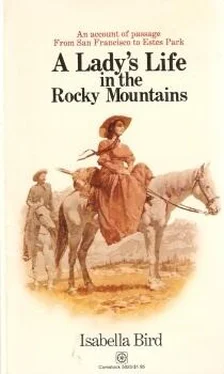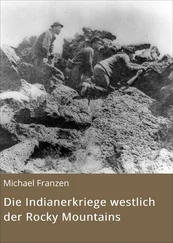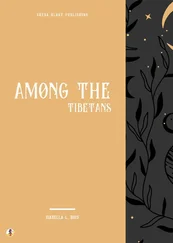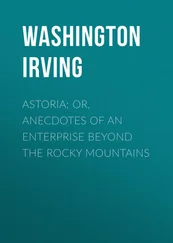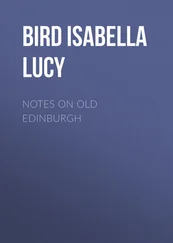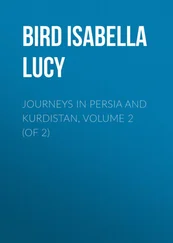Sunday was a dreadful day. The family kept the Commandment literally, and did no work. Worship was conducted twice, and was rather longer than usual. Chalmers does not allow of any books in his house but theological works, and two or three volumes of dull travels, so the mother and children slept nearly all day. The man attempted to read a well-worn copy of Boston's Fourfold State , but shortly fell asleep, and they only woke up for their meals. Friday and Saturday had been passably cool, with frosty nights, but on Saturday night it changed, and I have not felt anything like the heat of Sunday since I left New Zealand, though the mercury was not higher than 91 degrees. It was sickening, scorching, melting, unbearable, from the mere power of the sun's rays. It was an awful day, and seemed as if it would never come to an end. The cabin, with its mud roof under the shade of the trees, gave a little shelter, but it was occupied by the family, and I longed for solitude. I took the Imitation of Christ , and strolled up the canyon among the withered, crackling leaves, in much dread of snakes, and lay down on a rough table which some passing emigrant had left, and soon fell asleep. When I awoke it was only noon. The sun looked wicked as it blazed like a white magnesium light. A large tree-snake (quite harmless) hung from the pine under which I had taken shelter, and looked as if it were going to drop upon me. I was covered with black flies. The air was full of a busy, noisy din of insects, and snakes, locusts, wasps, flies, and grasshoppers were all rioting in the torrid heat. Would the sublime philosophy of Thomas a Kempis, I wondered, have given way under this? All day I seemed to hear in mockery the clear laugh of the Hilo streams, and the drip of Kona showers, and to see as in a mirage the perpetual Green of windward Hawaii. I was driven back to the cabin in the late afternoon, and in the evening listened for two hours to abuse of my own country, and to sweeping condemnations of all religionists outside of the brotherhood of "Psalm-singers." It is jarring and painful, yet I would say of Chalmers, as Dr. Holland says of another: —
If ever I shall reach the home in heaven,
For whose dear rest I humbly hope and pray,
In the great company of the forgiven
I shall be sure to meet old Daniel Gray.
The night came without coolness, but at daylight on Monday morning a fire was pleasant. You will now have some idea of my surroundings. It is a moral, hard, unloving, unlovely, unrelieved, unbeautified, grinding life. These people live in a discomfort and lack of ease and refinement which seems only possible to people of British stock. A "foreigner" fills his cabin with ingenuities and elegancies, and a Hawaiian or South Sea Islander makes his grass house both pretty and tasteful. Add to my surroundings a mighty canyon, impassable both above and below, and walls of mountains with an opening some miles off to the vast prairie sea. [11] I have not curtailed this description of the roughness of a Colorado settler's life, for, with the exceptions of the disrepair and the Puritanism, it is a type of the hard, unornamented existence with which I came almost universally in contact during my subsequent residence in the Territory.
An English physician is settled about half a mile from here over a hill. He is spoken of as holding "very extreme opinions." Chalmers rails at him for being "a thick-skulled Englishman," for being "fine, polished," etc. To say a man is "polished" here is to give him a very bad name. He accuses him also of holding views subversive of all morality. In spite of all this, I thought he might possess a map, and I induced Mrs. C. to walk over with me. She intended it as a formal morning call, but she wore the inevitable sun-bonnet, and had her dress tied up as when washing. It was not till I reached the gate that I remembered that I was in my Hawaiian riding dress, and that I still wore the spurs with which I had been trying a horse in the morning! The house was in a grass valley which opened from the tremendous canyon through which the river had cut its way. The Foot Hills, with their terraces of flaming red rock, were glowing in the sunset, and a pure green sky arched tenderly over a soft evening scene. Used to the meanness and baldness of settlers' dwellings. I was delighted to see that in this instance the usual log cabin was only the lower floor of a small house, which bore a delightful resemblance to a Swiss chalet. It stood in a vegetable garden fertilized by an irrigating ditch, outside of which were a barn and cowshed. A young Swiss girl was bringing the cows slowly home from the hill, an Englishwoman in a clean print dress stood by the fence holding a baby, and a fine-looking Englishman in a striped Garibaldi shirt, and trousers of the same tucked into high boots, was shelling corn. As soon as Mrs. Hughes spoke I felt she was truly a lady; and oh! how refreshing her refined, courteous, graceful English manner was, as she invited us into the house! The entrance was low, through a log porch festooned and almost concealed by a "wild cucumber." Inside, though plain and poor, the room looked a home, not like a squatter's cabin. An old tin was completely covered by a graceful clematis mixed with streamers of Virginia creeper, and white muslin curtains, and above all two shelves of admirably-chosen books, gave the room almost an air of elegance. Why do I write almost? It was an oasis. It was barely three weeks since I had left "the communion of educated men," and the first tones of the voices of my host and hostess made me feel as if I had been out of it for a year. Mrs. C. stayed an hour and a half, and then went home to the cows, when we launched upon a sea of congenial talk. They said they had not seen an educated lady for two years, and pressed me to go and visit them. I rode home on Dr. Hughes's horse after dark, to find neither fire nor light in the cabin. Mrs. C. had gone back saying, "Those English talked just like savages, I couldn't understand a word they said."
I made a fire, and extemporized a light with some fat and a wick of rag, and Chalmers came in to discuss my visit and to ask me a question concerning a matter which had roused the latent curiosity of the whole family. I had told him, he said, that I knew no one hereabouts, but "his woman" told him that Dr. H. and I spoke constantly of a Mrs. Grundy, whom we both knew and disliked, and who was settled, as we said, not far off! He had never heard of her, he said, and he was the pioneer settler of the canyon, and there was a man up here from Longmount who said he was sure there was not a Mrs. Grundy in the district, unless it was a woman who went by two names! The wife and family had then come in, and I felt completely nonplussed. I longed to tell Chalmers that it was he and such as he, there or anywhere, with narrow hearts, bitter tongues, and harsh judgments, who were the true "Mrs. Grundys," dwarfing individuality, checking lawful freedom of speech, and making men "offenders for a word," but I forebore. How I extricated myself from the difficulty, deponent sayeth not. The rest of the evening has been spent in preparing to cross the mountains. Chalmers says he knows the way well, and that we shall sleep to-morrow at the foot of Long's Peak. Mrs. Chalmers repents of having consented, and conjures up doleful visions of what the family will come to when left headless, and of disasters among the cows and hens. I could tell her that the eldest son and the "hired man" have plotted to close the saw-mill and go on a hunting and fishing expedition, that the cows will stray, and that the individual spoken respectfully of as "Mr. Skunk" will make havoc in the hen-house.
NAMELESS REGION, ROCKY MOUNTAINS, September .
This is indeed far removed. It seems farther away from you than any place I have been to yet, except the frozen top of the volcano of Mauna Loa. It is so little profaned by man that if one were compelled to live here in solitude one might truly say of the bears, deer, and elk which abound, "Their tameness is shocking to me." It is the world of "big game." Just now a heavy-headed elk, with much-branched horns fully three feet long, stood and looked at me, and then quietly trotted away. He was so near that I heard the grass, crisp with hoar frost, crackle under his feet. Bears stripped the cherry bushes within a few yards of us last night. Now two lovely blue birds, with crests on their heads, are picking about within a stone's-throw. This is "The Great Lone Land," until lately the hunting ground of the Indians, and not yet settled or traversed, or likely to be so, owing to the want of water. A solitary hunter has built a log cabin up here, which he occupies for a few weeks for the purpose of elk-hunting, but all the region is unsurveyed, and mostly unexplored. It is 7 A.M. The sun has not yet risen high enough to melt the hoar frost, and the air is clear, bright, and cold. The stillness is profound. I hear nothing but the far-off mysterious roaring of a river in a deep canyon, which we spent two hours last night in trying to find. The horses are lost, and if I were disposed to retort upon my companions the term they invariably apply to me, I should now write, with bitter emphasis, " that man" and " that woman" have gone in search of them.
Читать дальше
